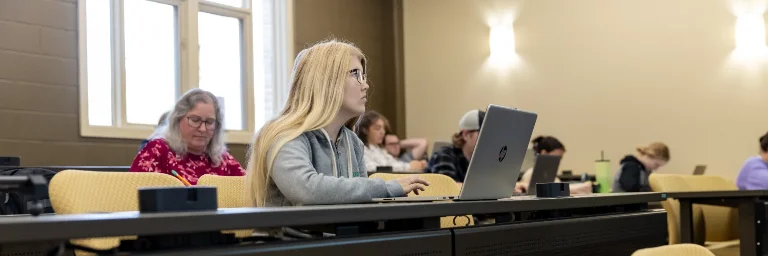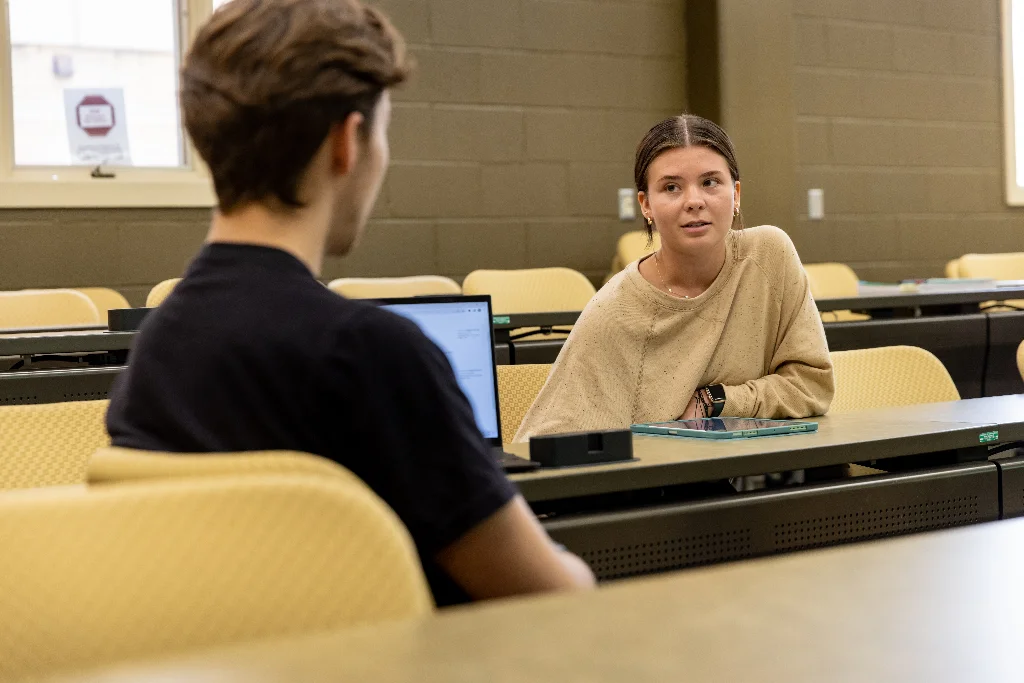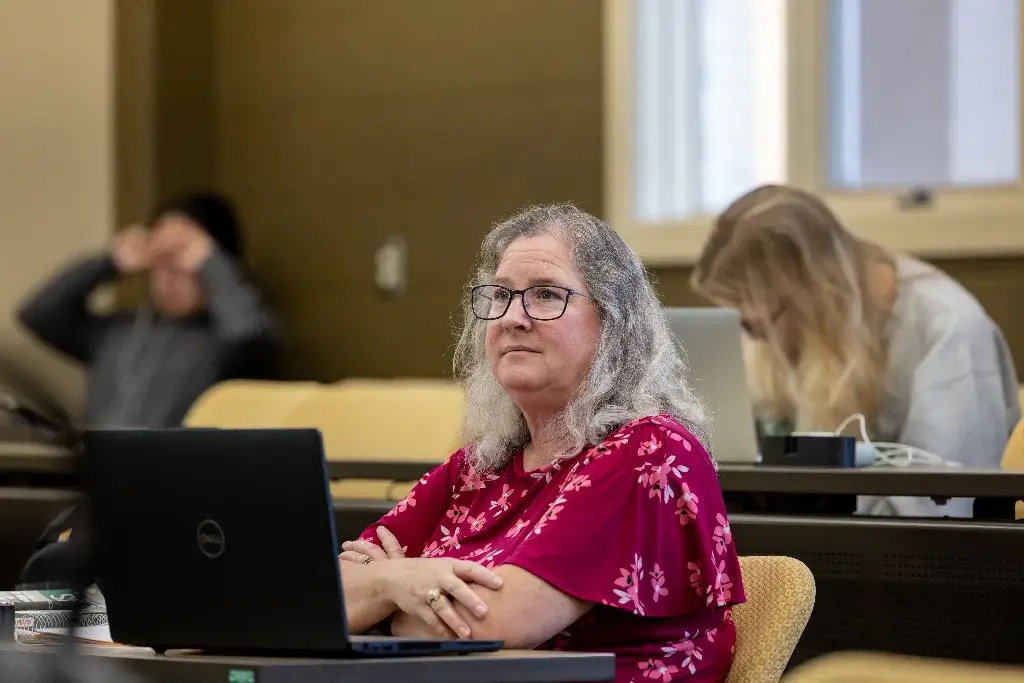
How to Become a Secret Service Agent: Step-by-Step Guide
When people think of the Secret Service, they often picture highly trained agents in dark suits protecting the President from imminent danger.
Request Information
While this image is accurate, it only scratches the surface of these agents' work. The Secret Service is integral in safeguarding some of the most influential individuals who shape the nation's governance and security.
For those interested in pursuing a career that combines investigative skills, protection, and a commitment to national security, the following guide explains how to become a Secret Service Agent. Read on to discover the qualifications, training, and application process involved in joining this elite team.
What is a Secret Special Agent?
A Secret Service Special Agent is a highly trained law enforcement professional tasked with protecting national leaders and safeguarding the nation's financial infrastructure and payment systems. These agents play a crucial role in ensuring the safety and security of the President, Vice President, their families, visiting foreign dignitaries, and events of national significance. In addition to their protective duties, Special Agents also conduct complex investigations into financial crimes, including counterfeiting, credit card fraud, and cybercrimes.
Skills and Attributes
Secret Service Special Agents must have:
- High level of fitness and agility
- Ability to assess threats and conduct investigations
- Attention to detail
- Strong verbal and written communication
- Ability to make quick, informed decisions in high-pressure situations
- High ethical standards and discretion with sensitive information
- Ability to work effectively with others
- Skill in using investigative and protective technologies
Basic Eligibility Requirements
According to the U.S. Secret Service, to be eligible for a Special Agent position with them, applicants must meet the following criteria:
- Be U.S. citizens.
- Be at least 21 years of age at the time of application and younger than 37 at the time of receiving a conditional offer of employment. Veterans' Preference allows applicants to be younger than 40 upon receipt of a conditional offer of employment.
- Have a current, valid driver's license.
- Qualify for Top Secret clearance. This involves a comprehensive background investigation, which includes:
- Personnel Security Interview (PSI)
- Polygraph examination
- Drug test
- Medical examination
- Fingerprinting
- Credit and arrest checks
- Verification of educational achievements
- Interviews with associates and references
- Agree to accept assignments anywhere in the United States and overseas.
- Certify registration with the Selective Service System or that you are exempt from having to do so (if you are a male born after December 31, 1959).
Educational and Experience Qualifications

The Secret Service also requires applicants to meet specific educational and experience qualifications, which vary depending on the grade level they are applying for. These requirements ensure that candidates have the necessary academic background and relevant work experience to perform effectively as a Special Agent.
GL-07 Level
To qualify for the GL-07 level, applicants must have a bachelor's degree from an accredited college or university. Degrees in Criminal Justice (B.S.), Law Enforcement (B.S.), Criminology (B.A.), Forensic Science (B.S.), or Political Science (B.A.) provide a solid foundation in understanding the legal system and investigative techniques. Additionally, degrees in Finance (B.B.A.), Accounting (B.Acc.), or Business Management (B.B.A.) are valuable for investigating financial crimes such as counterfeiting and fraud, whereas a bachelor's in Psychology and Sociology (B.A.) degrees offer insights into criminal behavior and effective communication skills. Overall, any degree that develops analytical thinking, problem-solving skills, and an understanding of the law can be relevant for aspiring Secret Service Special Agents.
They must complete the degree with superior academic achievement defined as:
- GPA of 3.0 or higher out of 4.0 in all completed undergraduate courses or those completed in the last two years of undergraduate study, or 3.5 or higher out of 4.0 on the average of the required courses completed in the major field or those completed during the final two years of the curriculum;
- Standing in the upper third of the graduating class in the college, university, or major subdivision; or
- Membership in a national scholastic honor society. (For instance, at UND, you can join Alpha Phi Sigma, which is affiliated with the Academy of Criminal Justice Sciences and is the only criminal justice honor society certified by the Association of College Honor Societies.)
No specific work experience is required if the educational criteria are met. If not, applicants need at least one year of specialized experience in investigative methods, protective methods, and law enforcement techniques that equip them with the necessary skills to fulfill the position's duties effectively.
GL-09 Level
For the GL-09 level, applicants must possess one of the following:
- A master's degree, like a Master's in Criminal Justice, Public Administration (MPA), or Sociology (M.A.), or they must have completed two full years of progressively higher-level graduate education leading to such a degree.
- One year of specialized experience equivalent to the GL-7 level, such as:
- Investigating violations of U.S. laws
- Creating investigative reports
- Leading a team and ensuring team goals and deadlines are met
- Interviewing witnesses
- Assisting in protective advance security surveys
- Analyzing intelligence information or investigating threats against officials
- Leading meetings or seminars for work or academic groups
Alternatively, a combination of education and experience can be considered.
GS-11 Level
To qualify for the GS-11 level, applicants must possess one of the following:
- A Ph.D. or equivalent doctoral degree, three full years of progressively higher-level graduate education leading to such a degree, or an LL.M. (Master of Laws) if related.
- At least one year of specialized experience equivalent to the GL-09 level, involving complex criminal investigations and evidence gathering. This experience should include tasks similar to those required for the GL-09 level but at a higher level of responsibility.
- A combination of specialized experience and related graduate-level education beyond the first full year of doctoral-level study.
Physical and Medical Requirements
Special Agents with the Secret Service must meet stringent physical and medical requirements to ensure they can perform the demanding duties of the role. These secret service agent requirements are designed to assess the applicants' overall health, fitness, and physical capabilities, ensuring they can handle the physical challenges associated with both protective and investigative assignments.
Physical Fitness Test
Applicants must pass a rigorous physical fitness test that assesses their strength, endurance, and aerobic capacity. This test includes a series of exercises designed to measure the applicant's physical abilities:
- Perform the maximum number of push-ups they can in one minute, maintaining proper form throughout.
- Perform the maximum number of sit-ups they can in one minute, ensuring their elbows touch their thighs 2-3 inches below the knees.
- Perform the maximum number of chin-ups they can, starting from a complete hang with arms fully extended and lifting their body until their chin is above the bar.
- Complete a timed 1.5-mile run to assess their cardiovascular endurance.
Vision and Hearing Standards
Applicants must have uncorrected visual acuity of no worse than 20/100 binocular, correctable to 20/20 in each eye. Acceptable eye surgeries include Lasik, ALK, RK, and PRK, with specific recovery periods before eligibility.
They must also have hearing loss not exceeding 25 decibels in either ear in the 500, 1,000, and 2,000 Hz ranges.

General Health and Mobility
Applicants must be in excellent health and physical condition to handle the demanding duties of a Special Agent. They must be able to perform a range of physically challenging tasks, and failure to maintain these standards can result in dismissal from training or duty.
The Application Process
The application process for becoming a Special Agent with the Secret Service is multi-staged, designed to identify and select only the most capable and qualified candidates. The process is divided into two main phases, each with specific steps that applicants must successfully complete to advance to the next stage.
Phase I
Phase I involves the initial stages of the application process, focusing on evaluating the basic qualifications and skills of the candidates. This phase ensures applicants meet the minimum eligibility requirements and possess the foundational skills necessary for the role. The exact steps of this phase encompass:
- Application is received
- Application is reviewed
- Cursory criminal background check
- Entrance exam
- Pre-employment interview
- Special Agent Review (SAR) panel
- Conditional job offer
Phase II
Phase II involves more in-depth evaluations and verifications, ensuring that candidates are fully vetted and meet all necessary standards before receiving a final job offer. So, upon receiving their conditional job offer, candidates must also undergo the following steps:
- Security interview
- Eye exam and eQIP
- Polygraph
- Medical and drug test
- Background investigation
- SMD clearance approval/denial
- Enter-on-duty location and date established
Finally, after all these steps, the employee reports to training.
What Disqualifies you from being a Secret Service Agent?
To become a Secret Service agent, candidates must meet strict standards. Disqualifying factors include:
- Use or purchase of MDMA, cocaine, or other hard drugs while holding a security clearance, along with other factors like extent of use, age at use, and legality.
- Conviction of a misdemeanor crime of domestic violence, unless pardoned or expunged.
- Failure to meet required physical or medical standards.
- Inability to obtain a Top Secret security clearance.
Conclusion
While the Secret Service's requirements and application process may seem extensive, it's clear why such rigorous standards are necessary. The critical nature of their work demands that all team members are highly skilled and prepared for the job. Education plays a crucial role in meeting these standards, providing the foundational knowledge required for many aspects of the role.
At UND, we offer numerous graduate and undergraduate programs that align with the educational needs of this career path. So, if you're aiming to join this elite group, UND can help you tick that essential requirement off your list. Remember, in the world of secret agents, excellence isn't just an option—it's a mission.
FAQs
Yes, the selection process is highly competitive and rigorous, requiring candidates to pass multiple stages of testing, interviews, and background checks.
The process typically takes six to nine months, but it can extend up to 18 months or more, depending on the length of the background investigation.
Candidates must wait three months before reapplying after failing the Special Agent Entrance Exam.
Yes, applicants can apply for both positions simultaneously.
It is crucial to be completely honest during the application process, as the Secret Service conducts thorough background checks and places a significant emphasis on integrity. Any attempt to conceal or misrepresent past behavior, such as drug use, will disqualify you from being considered for the position.